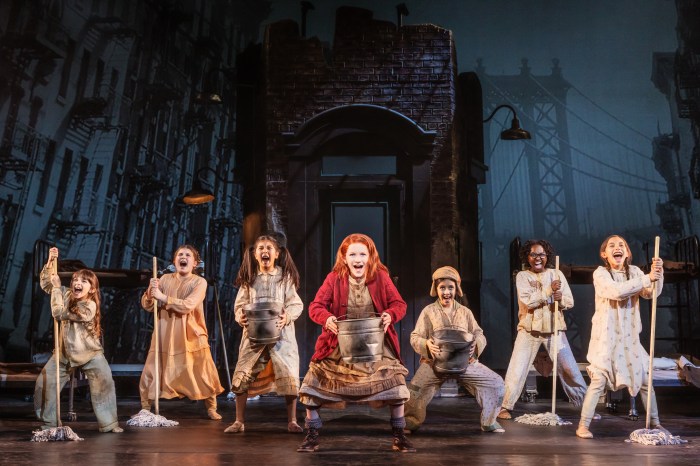For over 20 years, Connie Williams Coulianos and Dr. Esther Kogan have
worked in the field of gifted education—Coulianos most recently as the director
and master teacher at Hollingworth Preschool at Teachers College, Columbia University,
director of the early childhood program at Adelphi University.
preschool, the two women, teaming up with a group of dedicated parents and educators, created The Speyer Legacy
School, the city’s first independent school solely focused on gifted education.
As supporters like former NYC Schools Deputy Chancellor Judith Rizzo describe
it, a school like
addressing the needs of advanced learners—also addresses a looming societal
challenge. “Too few of our youngsters are learning at the highest levels,”
Rizzo says. “To compete successfully in a global economy, students need to
excel academically, socially and culturally—which is the promise of
also critical for our country’s future.”
Opening its doors in September of 2009,
third grade, and plans to extend these offerings through to the eighth grade.
For a new school, Speyer has piqued the interest of parents from all over the
city as well as the greater educational community, which included receiving the
award for Outstanding School for Gifted Education at the
Blackboard Awards last month. Here, Coulianos, Speyer’s head of school, and
Kogan, Speyer’s executive director, discuss their vision.
You’ve both been working with
gifted children at the preschool level for many years. Why start a school for
K-8 now?
Connie: There are so many children in the city who would
benefit from this kind of specialized education, so once it became evident that
there was also support for such a school—we call them the “founding families”—
it awakened our own willingness to make it a reality. When we started
discussing the idea for the school, our leadership team was reading Malcolm
Gladwell’s book, “Outliers.” One of its most memorable sections offered
heartbreaking evidence of how having a high IQ and the potential for
accomplishment is only realized when the academic opportunity and support of
the community exist. We’re trying to provide that kind of opportunity and
support. There should be more of it. As illustration, I’ll point out that in
2008 the NYC public school system tested and identified more than 14,000
kindergartners as advanced, but they are competing for far fewer spots—in fact,
fewer than half of the 99th percentile was fortunate enough to secure a space!
This is an extraordinary gap of advanced learners not getting the education
they need and deserve.
Given the potential of your
students, do you feel like you’re helping to nurture children who are likely to
one day be leaders and groundbreakers in their various fields and pursuits?
Connie: Absolutely! The danger of wasted potential is a
tragedy not only for the child who languishes without appropriate educational
opportunities; it is a national tragedy in terms of lost leadership and
innovation for the future of all citizens. Gifted children hold both personal
and societal promise we cannot afford to squander through inattention to their
unique need for challenge and rigor. Central to our mission is a commitment to
keep the fire alive to sustain our students through a lifetime of personal
fulfillment and service to society.
What’s the
connection between your school and the original
founded in 1936 and has since closed?
Connie: We have both a direct and indirect connection.
First, we have a direct connection through Kelly Posner Gerstenhaber, one of
the members of our founding board whose children are grandchildren of one of
the original Speyer Scholars, who attended P.S. 500 (known as the
the original school, our philosophy is that our students have needs that fall
outside what is generally addressed in a typical classroom. Our curriculum
addresses those needs and it is based on the work of P.S. 500’s groundbreaking
leader, Dr. Leta Hollingworth, revitalized and re-imagined it for the 21st
century. There’s a special and telling
coincidence here worth sharing. In “Outliers,” to illustrate how the right
educational setting can make all the difference in the life of an advanced
learner, the book juxtaposes two case studies: one of a truly brilliant man
(with a 200-plus IQ) who never had any kind of intellectual nurturing and
basically ended up as an underachieving bouncer for much of his life; and the
other, one of Dr. Hollingworth’s original students at the Speyer School, who
went on to become one of the most renowned mathematicians in the world and
helped give birth to the first computer. The inspiring connection for us is that the success story, the man who
went on to achieve all these great things and give so much to society, happens
to be Kelly’s father-in-law. It makes us feel like all our kids have that
potential and we’re helping them on their way.
How do parents know if their
children would be a good fit for your school? What makes an advanced learner?
Connie: Gifted children have what we call a rage to master, an intensity and
passion for learning. One of our kindergarten students last year said, “I can’t
stop now. My mind’s on fire!”—and I think that perfectly captures it. Advanced
development can be evident in many different areas. In some cases it’s verbal—having
a conversation with a child on a level that far exceeds what you would expect.
In other cases it can be interpersonal—a child who has the ability to relate
to, and empathize with, people on a very sophisticated level. It can also be
spatial—children doing incredible buildings or artwork.
Do advanced learners face any
unique challenges you’ll be addressing?
Connie: Yes, one typical challenge is perfectionism.
Children with high abilities have pretty high expectations of themselves and
will often be reluctant to attempt to do anything they can’t do perfectly.
Esther: Advanced learners can also
develop unevenly. A kindergarten child who can read at a fifth or sixth grade
level may not be socially or emotionally prepared for the content of books
directed at an older child. That can be confusing or frightening for the
advanced reader.
What will the curriculum at the
Connie: We start with a
core curriculum of literacy, math (The Singapore Math Method), history,
humanities and science. We have a special health and nutrition curriculum as
well as instruction in art, music, chess, Spanish and
even fencing from adjuncts who are experts in their respective fields. With
this population, my experience is that they master facts and concepts very
quickly and are then keen on discussing the meaning behind what they’re
learning. We want to hit that tendency to inquire head-on by including them in
the conversation. Through these conversations, we develop advanced critical
thinking skills—analysis, logic, originality. For example, we are using the
Full Option Science System (FOSS) as the basis for our science curriculum. Not
only do we focus on the content, we examine and explore the structure and
organization of the materials and how they are presented for study. In
addition, part of the philosophy we want to
communicate is that we’re looking to educate the mind, the body and the heart
of each child who attends
students the opportunity to support an orphanage in
the globe, the students actually develop meaningful relationships with the
children living in the orphanage.
What is your application process
like?
Connie: We include some of the same components of most
independent schools. We carefully consider input from parents, teachers, and
observations from our own on-site assessment to compile an extensive profile of
each candidate. We view the results of standardized tests as only one source of
information to be considered in conjunction with information from other
sources. Our timeline for notification this year will be in sync with
traditional private school admissions.
Esther: We also make a concerted
effort to welcome children from different backgrounds. One of the most special
aspects of the school is that the student body is as diverse as the city
itself, ethnically and financially. More than 50% of our families receive some
financial aid.
Being a new school, how do you get
parents to take a leap of faith and come on board?
Connie: We find that parents of advanced learners realize that their children
may need a more accelerated and individualized education. Many of them are also
persuaded, as we are, that their children are more likely to thrive among true
peers. Fortunately, our enrollment expanded from 26 to 63 in one year, so, if
anything, it looks like there is strong interest out there for this kind of
school—and probably for more of its kind.
Interested In
Finding Out More About
For more information on The Speyer Legacy School and to obtain admissions
materials, call
presently accepting applications for next September’s kindergarten with very
limited availability for 1-4 spaces.























